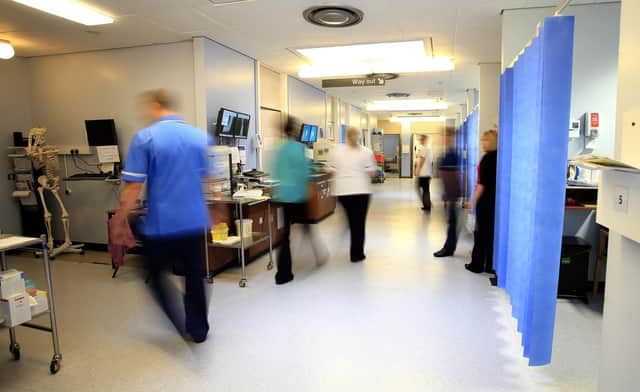NHS Scotland crisis: To save the health service, we must look after those who protect us – Joseph Anderson


Unfortunately, it overlooks the autonomy of the people who make up the NHS. The nurses, doctors, support staff and carers who have hopes and aspirations for their lives outside of the NHS, many of whom are now deciding a career in health is no longer for them.
Let’s first look at the latter – who would be a carer? For a barely liveable wage, you could work long hours (a common theme in every healthcare sector), be expected to provide intense emotional support for clients, and if you work with people with challenging behaviours, be subjected to verbal and physical assault. Added to this, care homes were the setting for some of the worst tragedies of the coronavirus pandemic, leaving behind a traumatised and vulnerable staff still having to work in the places that bore witness to such tragedy.
Advertisement
Hide AdAdvertisement
Hide AdThe number of staff leaving the profession, and the struggle to attract new workers, is one of the key contributors of NHS pressure. Elderly and vulnerable patients often can’t be discharged from hospital without an adequate care plan – but with no availability of care home and community care placements, these patients, who are otherwise fine to leave, end up blocking beds. With no beds available, patients presenting at emergency departments have nowhere to go, and face incredible waits in A&E before being treated.
Then, who would be a nurse? Nurses not only play an integral role in hospital settings, but in community care too, meaning an inability to attract and retain nurses is crippling the NHS. Fair pay is a key issue.
The Royal College of Nursing (RCN) is asking for a pay rise of at least five per cent above inflation, currently 11.1 per cent, but has been offered an average of 7.5 per cent by the Scottish Government, meaning nurses, also recovering from the pandemic, would see a real-terms pay cut this year. A recent survey showed nearly one in five nurses and healthcare workers are turning to food banks for help, leading the RCN Scotland to warn members are “facing a daily battle of how to feed their family, heat their home and travel to their work”.
Then, who would be a GP? The start of a patient’s journey through the NHS is often at a GP surgery, which along with emergency departments is one of the main routes patients take before hospital admission and/or treatment. But they too, are feeling the pressure.
The Scottish Government’s failure to retain and recruit GPs has led to doctors implementing “never before seen” emergency measures in surgeries, according to the Royal College of General Practitioners Scotland, while the chair of the British Medical Association's Scotland GP committee, Dr Andrew Buist, said some GPs are “facing abuse from frustrated patients” who can’t get appointments.
The people who care for our health deserve to have theirs taken care of too – and that necessitates paying them fairly, and giving them the work-life balance they need to perform their jobs. After all, it’s our lives that are on the line.
Comments
Want to join the conversation? Please or to comment on this article.